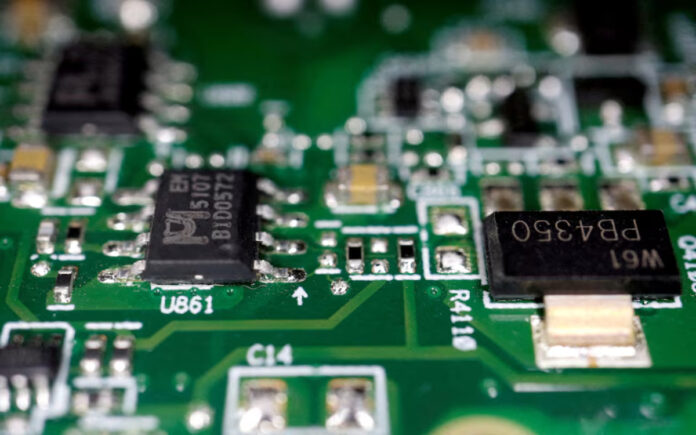Seoul: South Korea’s government will offer 14 trillion won ($10 billion) in low-interest loans next year to bolster its semiconductor industry, the finance ministry announced. The initiative aims to counter growing competition from China and navigate uncertainties stemming from potential shifts in U.S. policy under the next administration.
A portion of the loans, amounting to 1.8 trillion won, will be allocated to installing power transmission lines for companies in a new high-tech chip complex. This facility, spanning Yongin and Pyeongtaek south of Seoul, is poised to become the world’s largest chipmaking cluster, designed to attract semiconductor equipment manufacturers and fabless firms.
Navigating Global Challenges
As home to leading memory chip manufacturers Samsung Electronics and SK Hynix, South Korea faces mounting pressure from advancements in China’s semiconductor sector and potential changes in U.S. trade policies under President-elect Donald Trump.
“In response, the government plans to mobilize all available resources and actively support companies in overcoming the industry’s crisis and achieving a renewed leap forward,” the ministry said in a statement.
The ministry highlighted concerns about potential adjustments to key U.S. legislation, including the Inflation Reduction Act and the Chips and Science Act, which could reduce incentives for semiconductor investments. Additionally, South Korea is bracing for the possibility of broader tariffs under Trump’s leadership.
On Monday, Trump announced that he would impose a 25% tariff on all imports from Mexico and Canada and a 10% tariff on Chinese goods on his first day in office, citing issues related to illegal immigration and drug trafficking.
Also Read | The Musical Odyssey of Moana 2: A Celebration of Pan-Pacific Unity
Addressing Domestic and Global Competition
Despite its prominence in memory chip production, South Korea lags behind competitors in areas like chip design and contract manufacturing. Chinese companies, in particular, have intensified competition in traditional chip segments.
Last month, Samsung Electronics acknowledged the impact of increasing chip supplies from Chinese competitors on its third-quarter earnings.
Also Read | Cybersecurity Firm CrowdStrike Raises Profit Expectations on Strong Demand
By rolling out substantial financial support, South Korea aims to strengthen its semiconductor sector’s resilience and global competitiveness in an increasingly challenging environment.



